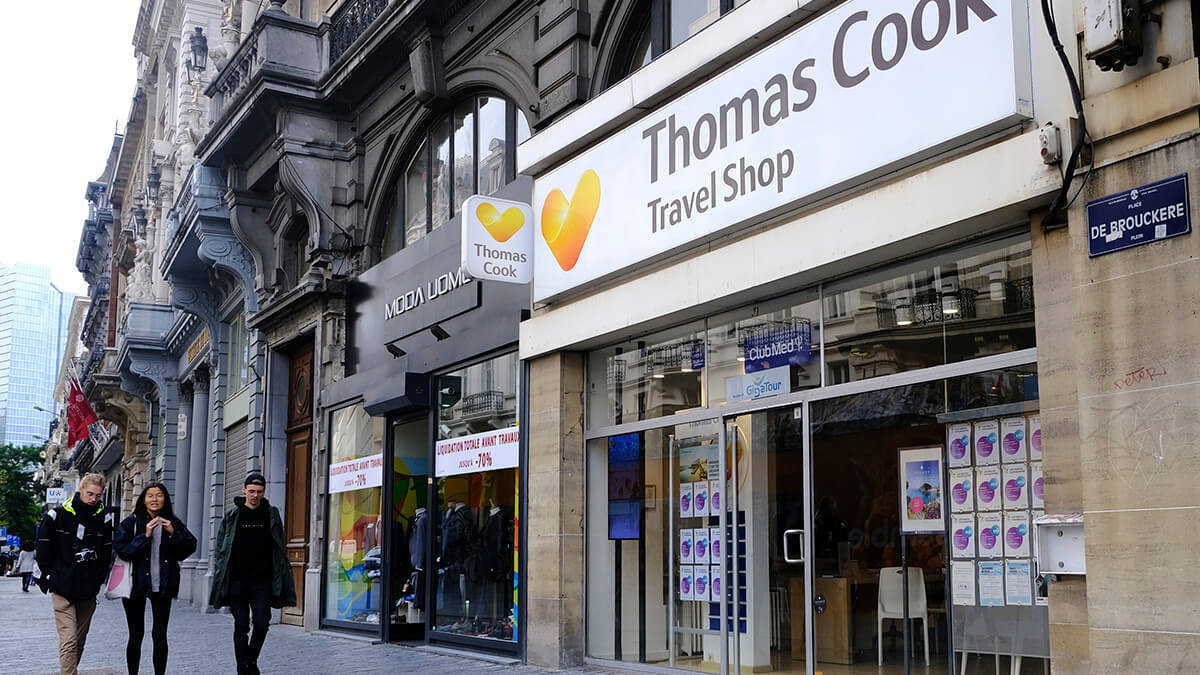Ever since I returned from a six-month sabbatical in London this year, I’m naturally more inclined to follow news developments in the UK. Interestingly, what caught my eye this week wasn’t just Brexit or the Supreme Court’s ruling that Prime Minister Boris Johnson’s decision to prorogue (discontinue) Parliament was illegal. That’s a big story, to be sure, with implications for the future of democracy in the UK, and perhaps other parts of the world.
No, what grabbed my attention was the demise of 178-year-old travel company Thomas Cook. Many Americans know the company because there are Thomas Cook currency exchange kiosks in many international airports. But for Brits, Thomas Cook is a travel agency and tour operator that has been making British holiday travelers’ dreams come true since before the days of air travel. It’s a venerable brand that has been synonymous with quality, reliability, and immense name recognition.
The collapse of Thomas Cook left hundreds of thousands of travelers stranded. The press are calling the challenge of returning those stranded travelers back to the UK the equivalent of the Dunkirk evacuation.
Naturally, the Thomas Cook situation reminded me of…higher education. Stay with me here.
Today, we see challenges to the established brands of higher education that we’ve never before experienced. Questions about affordability, the quality of the learning, and the relevance to the world of work have been headlines for colleges and universities in recent years, especially for those with very high prices or very low rates of student success. This has prompted a growing trend of school closures and mergers in the sector—about 20 private U.S. colleges have closed since 2016, and another dozen or more public and private universities have merged or been consolidated in some way.
Obviously, all this means big changes for higher education. Pretty much the entire system of U.S. colleges and universities is based on the belief that the quality of degrees, certificates, and other credentials is intrinsic to the institution —not to the learning that students obtain. Everything from how many applicants universities get, how much they can charge students and families, what kind of faculty they can draw, and especially how much money they can raise is a function of perceptions of quality based on what rankers and researchers call “reputational” factors.
Of course, this idea of quality goes hand-in-glove with an elitist system in which colleges and universities operate as gatekeepers. Today, it’s clear this system itself is breaking down, and not just because a few B-list celebrities got caught paying off college functionaries to game the system for their little darlings.
What’s really changing is that today, with more and better information about learning and credentials, consumers are gaining greater leverage in the marketplace. As we’ve seen in other sectors, including the travel industry, consumers’ ability to navigate the system puts pressure on the established brands to produce outcomes that consumers want—and not simply believe that they know best about what consumers need.
Thomas Cook failed as a nearly 200-year-old travel icon because consumers ultimately decided that they wanted more than the simplicity and peace of mind that came from relying on an old-line travel agency. They wanted better options, lower prices, and an overall more self-defined experience. And they get that from Expedia, Orbitz, and other aggregators.
For higher education, the lesson is straightforward. A reduction in brand power in traditional post-high school education because of better information means that the system overall will be better, because it will ultimately rest on what people know and can do with their credentials.
So, yes, the news from the UK this week has been eye-opening and troubling. But it also tells us that some good can come from this seemingly challenging news—for democracy, and for higher education. Let’s just hope we won’t need to evacuate thousands of students from the higher education system. Instead, let’s give them better information, increased affordability, and above all, credentials that matter.
